For most of us, sustainable living is a goal we have adopted only recently. For Ruchi Jain, the founder of Taru Naturals, a network of small-scale farmers across India, living in tune with Mother Nature has been a lifelong process culminating in the need to support the person she believes has the biggest role to play in preserving nature—the small-scale Indian farmer.
“Sustainable living is a mindset,” she explains. “Choosing to go organic means that you are aware that you are what you eat. You are aware of the kind of waste you generate. For me it’s about creating a movement for people who want to go back to nature. If you live with a small-scale farmer or tribal farmer, they actually protect nature. Everything goes back to nature. That’s the kind of example we want to create for people to emulate.”
But how did this Oxford-educated entrepreneur, who has worked with the Ministry of New and Renewable Energy (MNRE) and the World Bank, join the dots between sustainable development goals and Indian farmers? This journey started at home and went on to span the length and breadth of India.
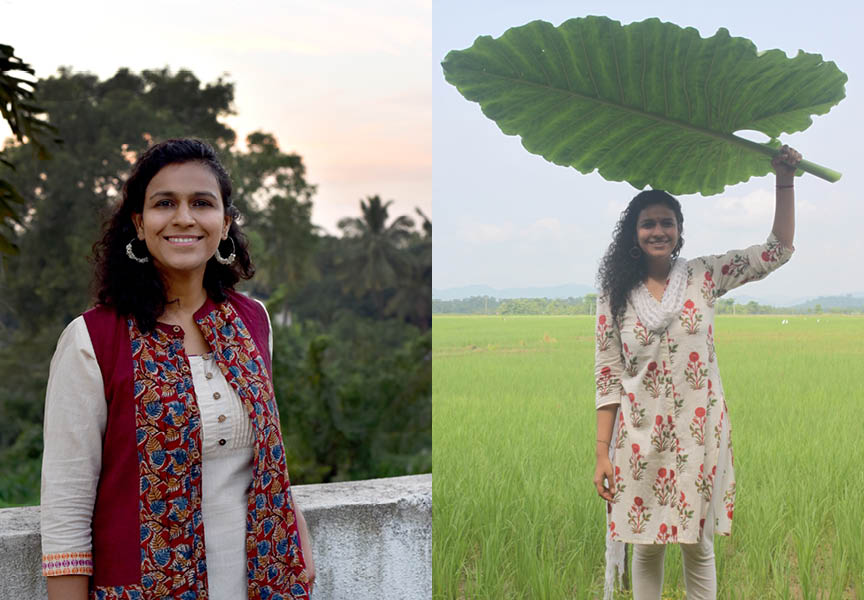
A journey through the grassroots
Growing up, Jain was able to create an intrinsic bond with nature thanks to her mother, Poonam Jain, a naturopath. From growing organic veggies in the backyard to never having allopathy for ailments, her passion for all things natural and environment-friendly had plenty of scope for growth. Add the influence of teachers like Dr Sudha Premnath (an ecologist) to this mix, and you have a young woman dedicated to working in the field of environment conservation.
After getting a Master’s degree in Environment Change and Management from Oxford University, Jain started working on rural projects for the MNRE and the World Bank. So, travelling extensively to the grassroots was a part of her life, and she got the opportunity to interact with many farming communities. But it was a work-related trip to Israel that indicated the direction she would take with her own venture. While there, she realised that sustainable agriculture can also make money.
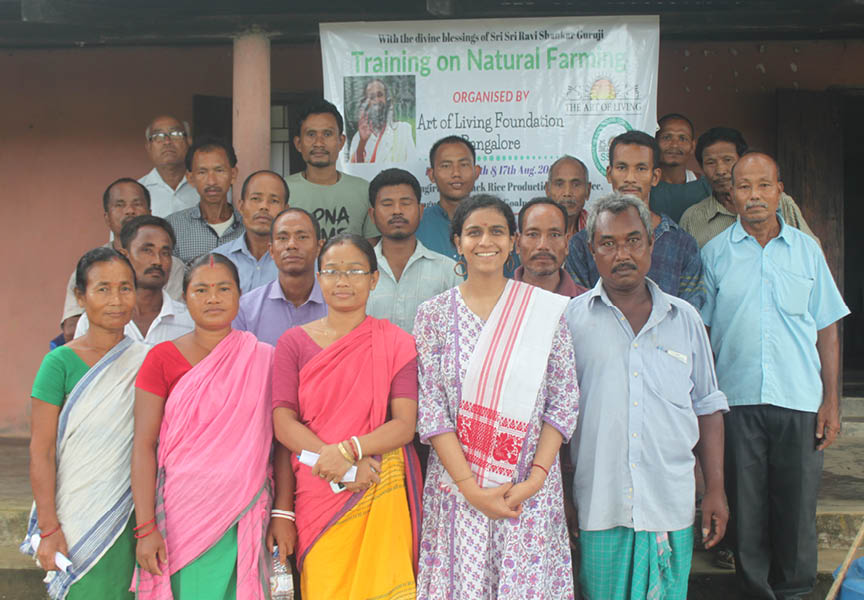
She also realised that while India and her farmers have the same potential, theirs was as yet untapped. “I realised that small-scale farmers are the core of this ecosystem, because they form the biggest segment of India’s agricultural system. The small-scale farmer is the strongest link to protecting Mother Nature. If you really want to create a big impact then it should be about fixing reliable value chains and creating self-reliant agro-ecosystems,” she says, adding that since that moment, her journey became about safeguarding agro-ecosystems, and traditional knowledge of small-scale farmers.
“Farming is, at the end of the day, a business,” she explains. “It’s a small-scale business and it needs to succeed. The farmer takes the most amount of risk, and the risk is dependent on Mother Nature. The farmer needs to be in sync with Mother Nature for his business to succeed, and for that he would have to practice natural farming and have a system through which he can sell the produce to survive. He needs better logistics, reliable supply chains, packaging and even market intelligence. That’s what we help the farmers out with.”
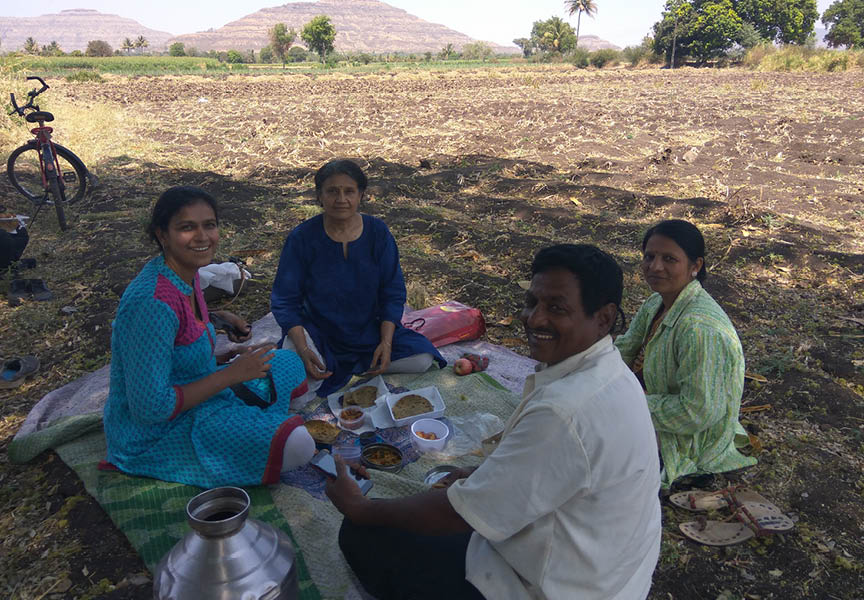
When passion finds a path
With this purpose in mind, Jain founded Taru Naturals in 2016. She started buying fresh, organic produce from farmers and selling them to any customers she could find. Everything from artisanal yellow bricks of jaggery to mangoes, pomegranate and grapes were home delivered by Jain herself. To make this business model viable, she also decided to learn natural farming by enrolling at the Sri Sri Institute of Agricultural Sciences and Technology Trust, Bengaluru. This hands-on experience taught her the language she needed to speak to the farmers, and helped her eventually become a sustainable agriculture trainer two years down the line.
Now, her model includes handholding farmers through natural farming training, providing logistics and supply chain services, and creating self-reliant business models for farmers. Before exploding on the B2C and e-commerce platforms like Amazon, Jain started selling the produce in bulk to restaurants, which ensured cash flows thanks to fixed orders. As Taru’s organic products gained popularity the world over (the products are sold in the US, Switzerland and Dubai, apart from pan India), the farmers behind them also stood out. Jain highlights how the black rice farming community in Assam, turmeric producers led by Dr Shashank Salunkhe in Satara, Maharashtra, and the organic jaggery farmers led by Suresh Desai of Belgaum, Karnataka, also became more confident as their sales increased.
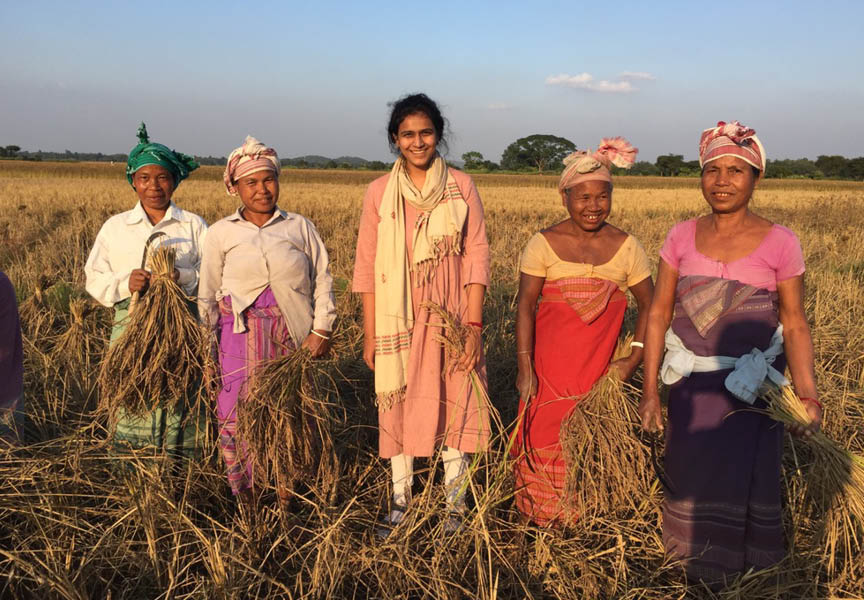
While simply adopting organic farming may not ensure a farmer a good price for his produce, being a part of the reliable value chain created by Jain has made this possible for many of them. On the other end of the chain are customers who now have access to well-sourced, safe and healthy organic food products. Since it also helps the customer eat healthy, Jain is now working to make women, especially mothers, part of the system. The social impact this movement has had in just over four years inspires and motivates her to continue working in the field. The COVID-19 pandemic, a period when people learned to value sustainable, healthy lifestyle choices more than ever before, gave her the impetus to escalate the pace of her work.
Sustainable living: More urgent now than ever before
Jain believes that it’s only when you press the pause button that people have the time to self-reflect, and that’s precisely what the pandemic has done. “I think we’ve all built deeper relationships with family, friends and things that actually matter to us,” she says. “We don’t consume as much or indiscriminately waste any more. For me, restoring the ecosystem has now become even more important. This is my life’s purpose now.” She also insists that the last year has taught people, especially those more privileged than others, that taking nature for granted is no longer an option. “What’s really in our hands is changing our lifestyle and the choices we make as consumers,” she says.
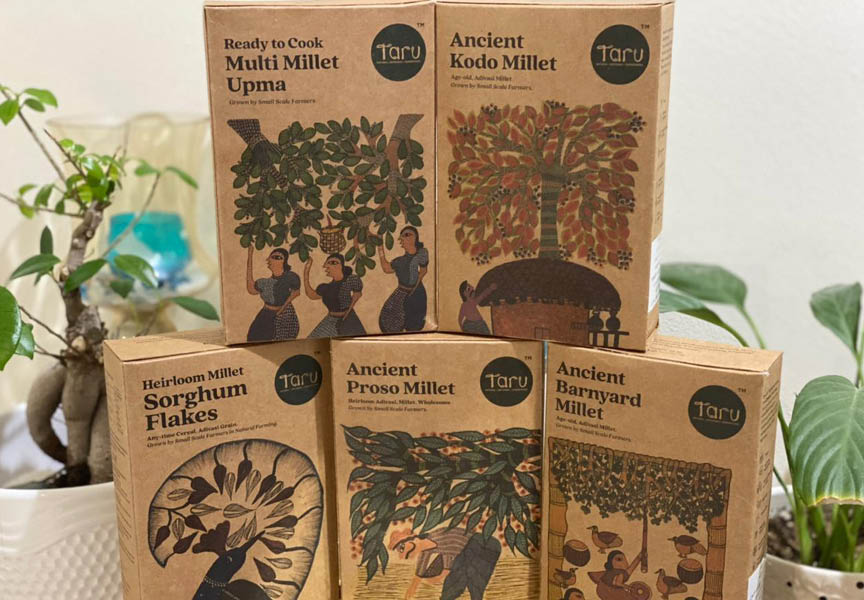
So, what suggestions does she have for you? “Eat different kinds of grains. We are a nation obsessed with wheat, white rice and white sugar,” she says, adding that we should try more variety. “As urban dwellers, we should support jowar and millets, because these are great for the planet. They don’t require much water while growing. Opt for jaggery instead of white sugar, as it also carries the legacy of Ayurveda. And also, go for organically grown products so that different small-scale farmers can be supported. By buying directly from the farmers you’ll give them a good price for their products as well.”
“People may ask why these products are more expensive, but the fact is we don’t run a conglomerate. If we did, we’d buy machines and labour would be cheaper, and so would the produce,” she says. “But small-scale farmers do back-breaking jobs because they can’t afford machines. Everything is done manually, and manual labour is expensive. That adds to the cost of organic produce. The certification for these produce is also very expensive. But food in India is anyway subsidised, so we can choose to pay the right price for the food so the right kind of food is grown by the farmers.”